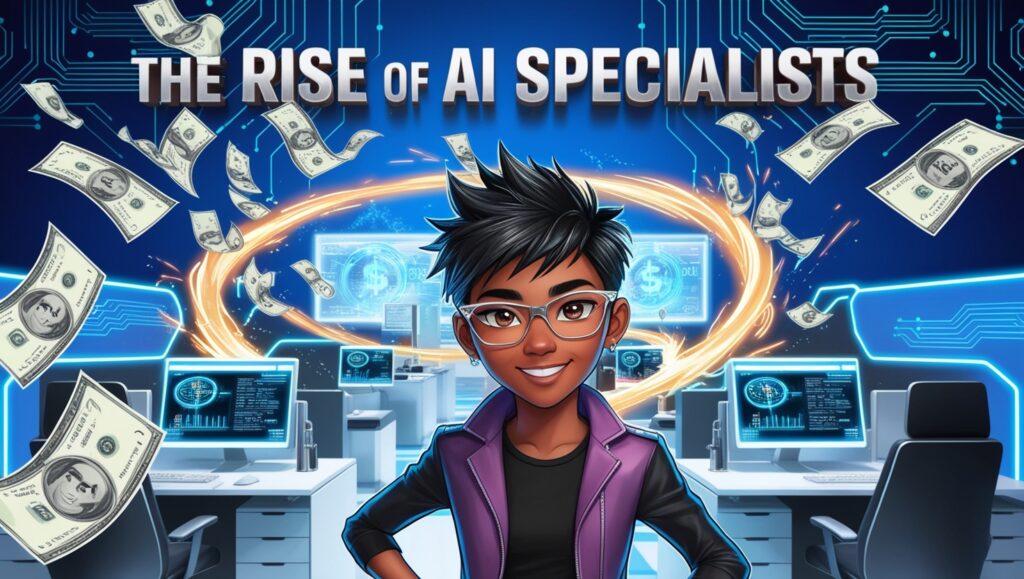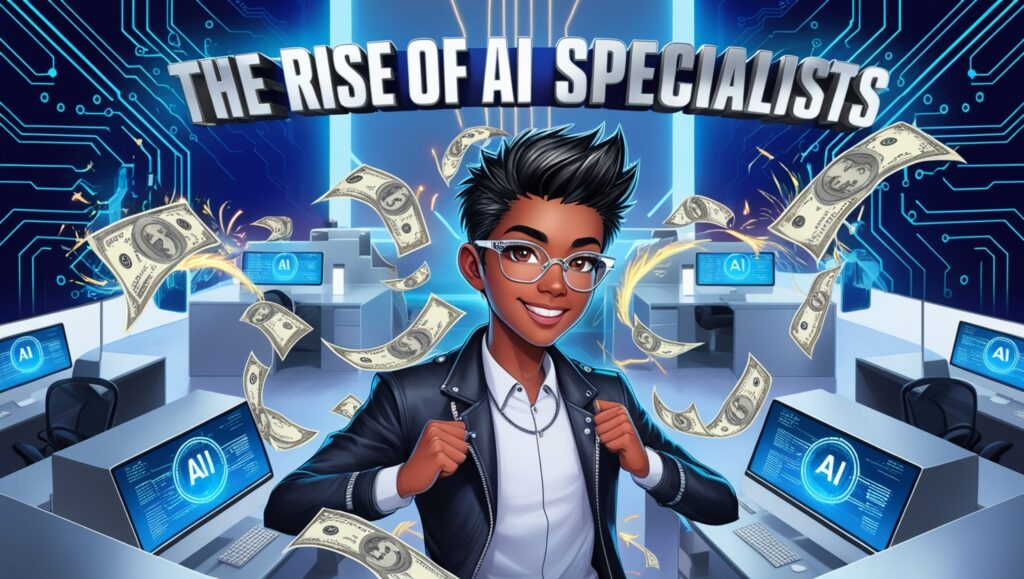The Rise of AI Specialists: Why It’s the Profession of the Future

Artificial Intelligence (AI) has emerged as one of the most transformative technologies of the 21st century. It is reshaping industries, redefining job roles, and creating unprecedented opportunities for innovation. Among the myriad professions influenced by AI, the role of AI specialists stands out as pivotal in shaping our future. This article delves into why AI specialists are in high demand, the skills they need, and how this profession is set to dominate the job market.

The Growing Demand for AI Specialists
The global adoption of AI across industries has led to an insatiable demand for AI specialists. Companies are leveraging AI to optimize operations, enhance customer experiences, and innovate new products. According to recent studies, the AI industry is expected to grow at a compound annual growth rate (CAGR) of over 35% between 2023 and 2030, with AI-driven technologies becoming integral to various sectors.
Key Drivers Behind the Demand:
- Automation of Routine Tasks: Organizations are using AI to automate repetitive tasks, reducing costs and improving efficiency.
- Data Explosion: The exponential growth of data has created a need for AI models to analyze and derive actionable insights.
- Personalization: From e-commerce to healthcare, AI enables hyper-personalized experiences, boosting consumer satisfaction.
- Advancements in Machine Learning: The rapid progress in machine learning algorithms and computing power has opened new possibilities for AI applications.
Essential Skills for AI Specialists
Becoming an AI specialist requires a blend of technical expertise, analytical thinking, and creative problem-solving. Here are the core skills aspiring AI professionals need to succeed:
- Programming Languages: Proficiency in Python, R, and Java is crucial for implementing AI models.
- Mathematics and Statistics: A solid understanding of linear algebra, probability, and statistics is fundamental.
- Machine Learning Frameworks: Familiarity with TensorFlow, PyTorch, and scikit-learn is essential for developing AI solutions.
- Data Handling: Skills in data preprocessing, cleaning, and visualization are indispensable.
- Natural Language Processing (NLP): Knowledge of NLP techniques is critical for applications like chatbots and language translation.
- Problem-Solving: The ability to identify problems and create innovative AI-driven solutions is a must-have trait.
Industries Embracing AI Specialists
AI specialists are no longer confined to the tech sector. Their expertise is now sought across a diverse range of industries:
- Healthcare: AI is revolutionizing diagnostics, drug discovery, and personalized medicine.
- Finance: AI-driven algorithms power fraud detection, risk assessment, and algorithmic trading.
- Retail: Retailers use AI for inventory management, customer behavior analysis, and personalized marketing.
- Manufacturing: AI-powered robots and predictive maintenance enhance productivity and reduce downtime.
- Entertainment: AI creates realistic animations, recommends personalized content, and enhances gaming experiences.
Challenges in the Field
While AI offers immense potential, it also poses significant challenges. AI specialists often grapple with issues such as:
- Ethical Concerns: Ensuring AI systems are fair, unbiased, and transparent is a critical challenge.
- Data Privacy: Balancing innovation with data security and privacy remains a key concern.
- Skill Gap: The rapid evolution of AI has led to a shortage of professionals with the necessary skills and experience.
- Integration: Adopting AI solutions often requires significant changes to existing systems and workflows.
The Future of AI Specialists
The future of AI specialists is undeniably bright. As AI continues to advance, the role of AI specialists will evolve to include:
- AI Ethics Officers: Specialists ensuring ethical AI deployment and compliance with regulations.
- AI Trainers: Professionals focused on training AI systems using high-quality data.
- AI Integration Experts: Experts helping organizations seamlessly integrate AI into their operations.
Moreover, the rise of AI-powered tools will empower AI specialists to focus on more strategic and innovative tasks, further amplifying their value in the workforce.
Conclusion
The rise of AI specialists is a testament to the transformative power of technology. As industries continue to embrace AI, the demand for skilled professionals in this field will only grow. By acquiring the right skills and staying updated with the latest advancements, aspiring AI specialists can position themselves at the forefront of this exciting profession. With the potential to reshape the world, AI specialists truly represent the profession of the future.







